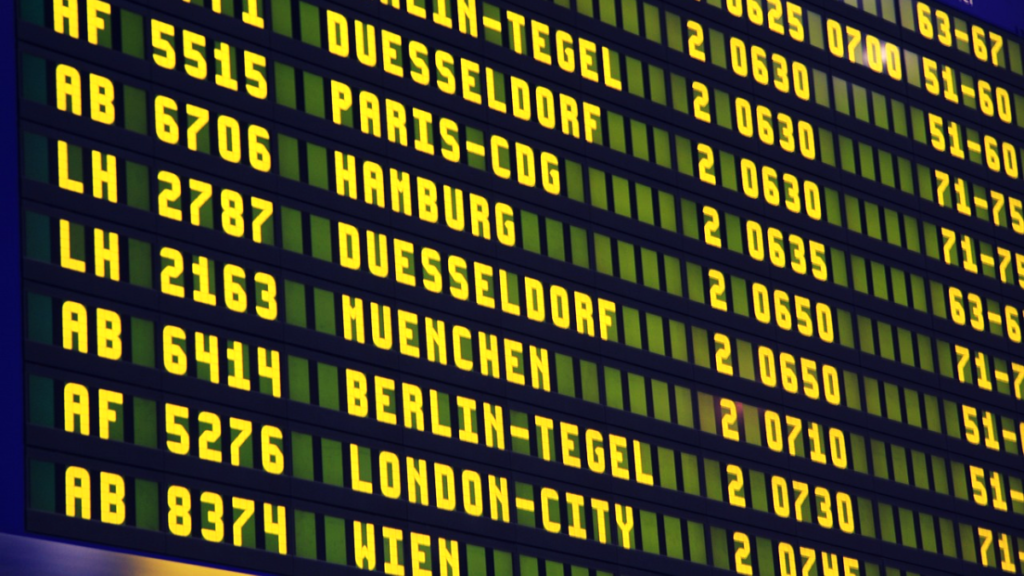I choked up with emotion as I scanned the Southwest departure screen at Florida’s Ft. Lauderdale airport. I was looking for the status of my flight home; to my surprise, among the many domestic flights leaving Florida that day were flights to Havana and Varadero, Cuba.
Why the emotional response? I am not Cuban; I am not of Latin American ancestry. Yet I experienced something universal, something more powerful than mere pride from identity based on ethnic ties.
The long-suffering Cuban people now had tangible prospects for a better life. The engine of this better life is commerce and the outcomes will be win-win.
As a boy living through the Cuban Missile Crisis, I experienced fears of nuclear annihilation. Now this corner of the world was getting smaller, more peaceful.
Conditions at Cuban airports are currently relatively primitive. With more flights, that will change. Peter Cerda, vice president at the International Air Transport Association, pointed out: “Sooner or later, the technology that we take for granted now…will have to be put in place in Cuba.”
New technology, new service requirements means introducing Cuban employees to Western ways of doing business. As more Cubans are exposed to Western business standards how much tolerance will they have for the primitive conditions they endure in their daily lives? Economic and political liberalization is sure to follow or the Cuban regime will not survive.
A “service revolution” is already underway in Cuba’s tourist industry. Trusting strangers is not the norm in socialist countries. Treating a stranger with kindness and empathy is not the norm in socialist countries. Actualizing the best of our human nature is difficult when the customer is never right.
Commerce brings out the best in human beings by providing incentives to care about others. Those who can’t rise above focusing on their short-term narrow needs have little ability to meet the needs of others.
Win-win is the way of commerce, win-lose is the way of socialism.
Commerce Promotes Peace
Why would I harbor hatred towards those who engage with me in mutually beneficial trade? The world naturally seems more peaceful, when we are creating value for each other.
In his Forbes essay, “A Virtuous Cycle“, James Surowiecki demonstrates how, over time, trust—defined as “basic confidence in the promises and commitments that people make about their products and services”—is fostered in a capitalist society. As strangers willingly serve the needs of other strangers, trust grows and prosperity arises. Surowiecki writes,
Capitalism… encouraged universalism over provincialism. It demanded a willingness to make and keep promises–often to strangers and foreigners–deep into the future. It fostered a sense of individual, rather than group, responsibility, and encouraged a more strict accounting of the relationship between action and consequence.”]
A “successful market system,” Surowiecki explains, teaches us and disciplines us to be trustworthy and trusting. Being trustworthy and trusting promotes peace.
In his book Mad About Trade, Dan Griswold further explains why trade promotes peace:The growing network of global trade and investment has raised the cost of war, so that now if two nations go to war, they not only lose soldiers and tax dollars, they also lose markets and cause lasting damage to their economies. Globalization has also reduced the spoils of war by allowing people to acquire resources through peaceful exchange rather than conquest.”]
In his study “Peace through Trade or Free Trade?” professor Patrick J. McDonald, demonstrated that “countries that engage in free trade are less likely to invade and less likely to be invaded.” McDonald observes that:Free trade, and not just trade, promotes peace by removing an important foundation of domestic privilege—protective barriers to international commerce—that enhances the domestic power of societal groups likely to support war, reduces the capacity of free-trading interests to limit aggression in foreign policy, and simultaneously generates political support for the state often used to build its war machine.””]
Towards a Peaceful Foreign Policy
As McDonald observes those who trade without state subsidies have an interest in a peaceful world. For many decades Cuba has been an “enemy” of the United States. Can we be friends with those who organize their society differently?
John Quincy Adams’s offered eloquent advice in 1821, to be a shining example of a freedom but not a “vindicator” of freedom:Wherever the standard of freedom and independence has been or shall be unfurled, there will [America’s] heart, her benedictions and her prayers be. But she goes not abroad in search of monsters to destroy. She is the well-wisher to the freedom and independence of all. She is the champion and vindicator only of her own. She will recommend the general cause, by the countenance of her voice, and the benignant sympathy of her example.”]
Adams’s advice faded from memory; with our forgetting, has our own freedom eroded? Adams foresaw that meddling in the affairs of other countries would induce a troubling shift in America’s mindset from “liberty to force”:She well knows that by once enlisting under other banners than her own, were they even the banners of foreign independence, she would involve herself, beyond the power of extrication, in all the wars of interest and intrigue, of individual avarice, envy, and ambition, which assume the colors and usurp the standard of freedom. The fundamental maxims of her policy would insensibly change from liberty to force… She might become the dictatress of the world: she would be no longer the ruler of her own spirit.”]
Is the warning of John Quincy Adams relevant today? Did our force bring peace and prosperity to Iraq, Libya, Syria, or Afghanistan?
Commerce is pointing the way to a more peaceful and prosperous Cuba; every Southwest flight into Cuba will peacefully deliver a bit of America’s spirit. In a world fraught with danger, I had no idea how my heart would gladden by a glance at the Southwest departure board.
This piece was originally published at the Foundation for Economic Education.



